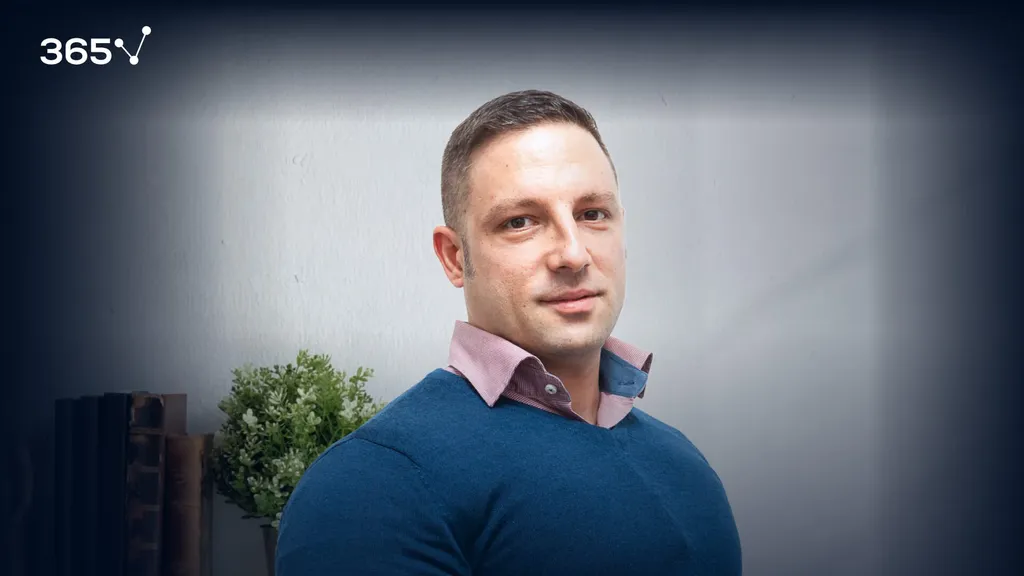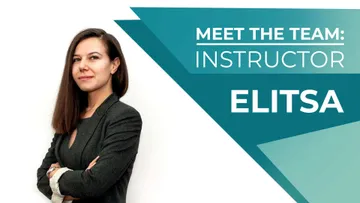Nikolay Georgiev, Instructor at 365 Data Science
Nikolay is a data science professional with a rich background in marketing analytics, risk modeling, and research (and author of the upcoming Credit Risk Modeling course in the 365 Data Science program). He has a Master's degree in Science, and a Ph.D. in Economics and Business Administration. The 365 Instructor has more than six years of experience in academic research at BI Norwegian Business School, and The University of Texas at Austin, U.S. He has also worked on numerous projects that involve building highly accurate quantitative models and solutions for customer portfolio management, credit risk, social media marketing research, and psychological targeting.
Hi Nikolay. I’m glad to have you as a meet-the-team interview guest. Let’s start with a quick introduction for our readers. What do you do at the company and what’s the project you’re working on right now?
I create content for online courses in the field of Applied Data Science. More precisely, I find a very typical business problem that organizations can solve using data, I solve it by running analyses in statistical software, and I describe my analyses for students to learn. Right now I’m putting the finishing touches on the Credit Risk Modeling course which will be included in the 365 Data Science curriculum very soon!
Thanks for sharing the exciting news here, Nikolay! Your academic background and research experience are quite remarkable! Can you tell us a little bit more about how you apply them in your data science projects?
Thanks. I’ve got a degree in Psychology, another degree in Statistics, and a doctorate in Economics and Marketing. I’ve done a few research projects with other researchers in Europe and the US.
A very interesting one I did in Norway, at BI Norwegian Business School, was about identifying and predicting who is going to become influential in online communities and online social networks based on the words people write online. We collected data from a couple of online communities. As it turned out, by using what people had written at the beginning of their activity, we could predict for years in advance who is going to have more friends and followers and who is going to occupy a more important position in the online social networks of these communities. In fact, the accuracy of our predictions was very good for social science. However, it wasn’t as high as you’d have with, let’s say, macroeconomic data. Nevertheless, the methodology we developed may be very useful when you have no other information about people except for what they have written.
Another interesting project I worked on at the University of Texas at Austin was about assessing the impact of different teacher initiatives on students’ engagement and performance in the largest synchronous massive online course in the world at that time.
And, of course, I can’t help but mention the latest research project I worked on at HEC Paris.
We found that the more negative (and the less positive) words an online review has, the more helpful readers find it. At first, you may conclude that people perceive negative online reviews as more useful. But that’s not exactly the case. The positive reviews that rate a product or a service with 5 or 4 stars, and contain more negative words, are also considered more useful.
You have a special twinkle in your eyes when you talk about this topic, Nikolay. So, can you shed some light on your fascination with the intersection of Data Science and Psychology with us?
Of course, this is all very exciting. There are many areas where the two fields intersect. Some pretty advanced ones are the use of Psychology in Machine Learning and Artificial Intelligence. After all, we don't call neural networks “neural” by accident. Here, we can go as far as talking about artificial intelligence that manifests human-like affective, intentional, and cognitive processes.
But I won’t be going that far.
What the twinkle in my eyes comes from is far less complicated. It’s about applying data science to obtain psychological insights about people based on records of their behavior, most often digital. In 2013 it was demonstrated that psychological traits can be inferred pretty accurately from Facebook likes. In particular, I’m talking about the research that Cambridge Analytica based their targeting on for the 2016 US Presidential Election. Data Science and Psychology can help you understand what someone is like, and can help you do that large-scale, for many individuals at once. Knowing psychological theories, you can design specific targeting interventions. Again, Data Science methods can help you measure the effectiveness of these interventions. More recent research shows that they work quite well, actually. We call this psychological targeting, and it wouldn’t be possible without Data Science.
That’s all very intriguing! And so is your professional background. You have quite a lot of experience in marketing analytics, risk modeling, data science, and research. From your experience, what are the benefits to having a variety of skills?
Thank you. The benefits are numerous. To say the least, having a variety of skills allows you to understand, work on, and solve multidisciplinary problems. Specializing in one field has always been increasingly important since the Industrial Revolution. But, as our capabilities to record, store, process, and analyze more and more data have increased tremendously in the last few decades, we’ve started to realize that things and concepts from very different areas are more interconnected than we had thought. This is why having a variety of skills is becoming more and more important, both for solving practical problems and for doing scientific research and creating knowledge.
Nikolay, you’ve lived in Bulgaria, Norway, France, the UK, and the US. Which is the one that fits your personality best and why?
The United States of America, in particular, Texas, Arizona, and California fit my personality best. The United States is a country I had never wanted to visit but once I set my foot in Texas, it was an instant click: a feeling that I fit so well as if I were born there.
The US values are my values, and if one should point out one and only one of them: it is liberty. Personal freedom and independence are the things that the US was conceived with by the Founding Fathers. The socio-economic system stemming from these values is such that the individuals themselves are greatly responsible for what they do with their lives, what they will achieve, and so on.
Inevitably, this reflects how people treat each other, and it is not at all surprising that Americans have the most positive, polite, kind, respectful, delicate, and natural way of communicating with others.
As the US National Anthem sings, it is “the land of the free and the home of the brave”, and it really is. This is a society where people are independent and strive to achieve what they want: “the pursuit of happiness”, as it is written in the Declaration of Independence. Not surprisingly, Luben Karavelov, a key figure in the Bulgarian Independence Movement from nineteenth century, said that he wants “American liberty” for the Bulgarian country that was yet to gain independence, and for Bulgarian people.
Now let’s now talk about an important part of your lifestyle: fitness! When did you start training, Nikolay? What’s your current fitness goal?
I’ve always been working out, on and off, since high school. But a couple of years ago I became very interested in hepatology. I’ve read a lot of scientific papers from clinical trials in the area. Actually, almost everything on the topic published in reputable scientific journals in the past 30 years or so.
Of course, I applied some of the things I learned. As a result, I had an increase in strength and endurance, and I needed less time to recover between workouts. So, then I started working out more regularly and seriously. And I gained a lot more muscle and burned a lot of fat, which was my objective originally. In my opinion, the most efficient way to stay healthy and lessen the negative effects of the environment and time is to gain as much muscle mass as possible. That's my current goal, as well as my goal in the long run.
We certainly know we can always count on you for fitness advice. In conclusion, can you share 5 reasons why you (and everyone should) love data science?
Because of the word “science” from “data science”.
Science is about exploring and discovering, on the one hand, and critically evaluating and testing, on the other hand, by utilizing data. So, everyone should love data science because:
- It gives you the opportunity you to explore, uncover and discover new things;
- allows you to critically evaluate and test hypotheses;
- teaches you to comprehend, synthesize, and analyze large amounts of information from many different fields;
- enables you to understand the past and predict the future, so you know how to act in the present;
- and, of course, because it helps you understand how things work.





